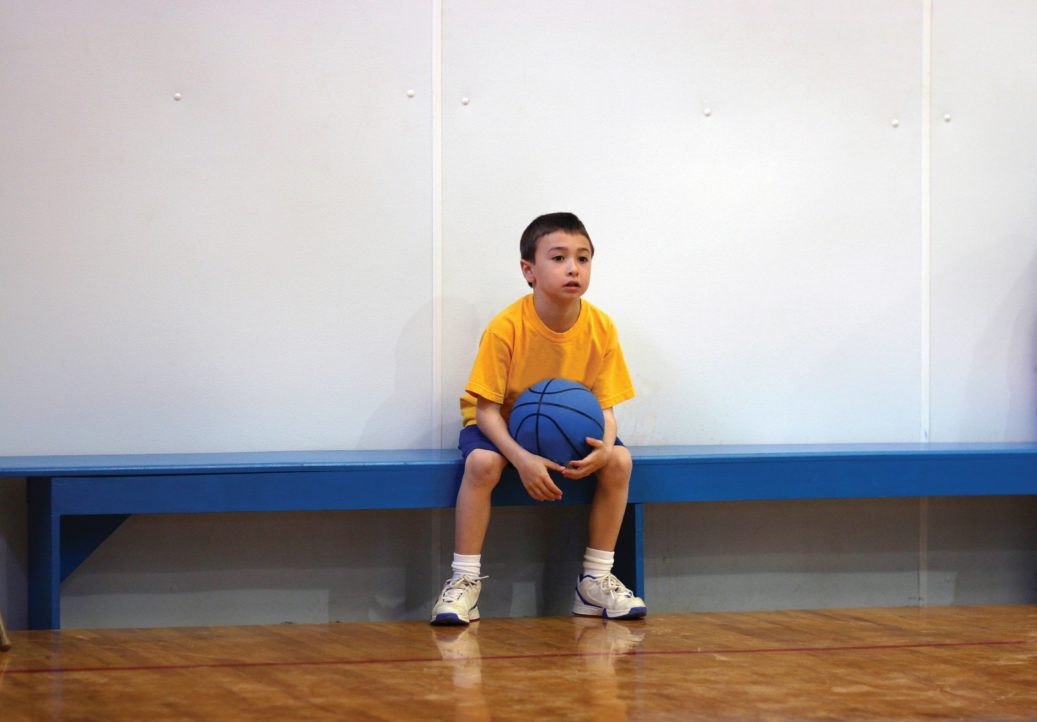Learning To See Value In Everyone
“Oh, okay. We’ll take Marc.”
I often heard that statement, with a sigh attached, when we were picking teams to play baseball or hockey in my childhood. Meet the geek. I wasn’t good at sports. I didn’t know the hockey players like my friends did. I was scrawny and uncoordinated.
We often played hockey on the street, in which case I was most often put in net, where stick handling was not really necessary. But here’s the real kicker — when we played hockey on the local frozen park pond, what position was I chosen to play?
Referee!
Yep, let’s let Marc watch the game with skates on so he can feel like he’s involved. It’s quite laughable now, but it wasn’t at the time. I did have things working against me. My skates were always hand-me-downs from my neighbour. By then, there was little support in the ankles, and they didn’t always fit.
I don’t want to sound like I’m crying the blues. What I can say is that those events had an effect on my self-perception. I had a definite sense of inferiority since all my friends were athletic, and I wasn’t. There was an expected norm—and I was the Frenchman that didn’t like hockey!
We live in a world filled with expectations. In sport, we place expectations on ourselves and others. The team expects everyone to do their best and perform well. The coach expects the individual to train and be prepared.
Parents want their child to be the next pro athlete in the sport. We all want to win.
But what happens when expectations are not met?
What happens when expectations are not realistic? We can be hard on ourselves and others. More than that, we can begin to determine our value based on our performance.
I had one good experience in sports growing up. My grade seven and eight Phys Ed teacher was Mr. Lemer (pronounced Lemay). He put me on the basketball team in grade eight, which was a shock to me and likely to most of the other players as well. I was thrilled.
Me… Marc Brule… on a basketball team. Amazing!
I spent most of that season keeping the bench warm for other players. But I was still on the team! However, I had one of the most embarrassing experiences on that team.
We were in a tournament and it was the beginning of the third quarter. I had not played yet, so the coach put me on for a shift.
Unfortunately, I had forgotten we switched ends, so when the ball was passed to me, I began running toward our own basket and was stopped by a whistle blow. All the grade eight girls watching laughed, and I returned to the bench feeling totally embarrassed.
And so ended my basketball career.
Funny thing is, being on that team is a highlight to this very day. Why? The coach communicated to me that he saw more than the awkward kid who wasn’t any good at the game. He saw someone who had value and needed encouragement. I bumped into him forty years later, and we talked about it. He said he wanted to build me up in some way. We both knew I was not good at basketball.
Yet he knew that including me would build something in me. As guys, we often wish we were what we are not. We want to be better at something than we are. We want to do what someone else can do. Our environment and the voices around us can reinforce those shortcomings.
We end up focusing on our weaknesses instead of our strengths. We stop developing and building our strengths because we are so focused on strengthening our weaknesses.
You need to do both. Build on your strengths. What you are good at, get better. Bolster your weaknesses.
What you are not good at — improve.
Let me qualify that statement. If it is a necessary skill, get it strong enough that it doesn’t sabotage your strengths. Then keep on growing in your strengths. I don’t waste my time bolstering a weakness in an area that I do not need. (That’s why I don’t play golf!)
Function & Value
First Corinthians 12:21 says, “The eye cannot say to the hand, ‘I have no need of you,’ nor again the head to the feet, ‘I have no need of you.’” (ESV)
Our value is not based on our function. My function is not one of sport; it is one of teaching and communicating.
I have guys in our church that are great with tools. Others are great with tech. I see how all of them bring something to the table, and I value them simply because they are men that are serving God. They have worth because of who they are, not because of what they do.
In the world of sports, it is good to strive to excel. It is good to shoot to win. There can be healthy competition.
These things are not wrong. If they were, sports would be like watching grass grow (which is what watching golf is like to me!)
The danger lies in how we derive our value and communicate value to people in that context. If you are a coach, never forget that your players are people with intrinsic value first. If you are a player, remember that your teammates and your competitors are people with intrinsic value first. Also, remember that your value is not purely based on your performance. This concept is not limited to sports. The world is also filled with teams, coaches, competition, and failure. This is true in all of life.
Sports are just a microcosm of the larger realities of life.
So, if you are a leader, never forget that your team consists of people with intrinsic value first. If you work with others (which we all do at some point), remember that they all have value. And remember that you have value that is not based on your performance.
“So you are no longer a slave, but a son, and if a son, then an heir through God.” (Galatians 4:7, ESV)
The greatest gift you have received from God is not your ability to play a sport, work a job, solve problems, or even raise a family. It is that through faith in Jesus Christ, you are declared to be a son and an heir. This is where your value comes from.
My coach earned our respect because he communicated value to us. He took us all out for Big Mac’s after we lost that tournament. And we never forgot how that felt, to know he valued us no matter what.
Whether you’re a husband, a father, a labour worker, an usher in church, see yourself as a coach in life who sees the value in people. Build them up.
Communicate value to them. Show them that God values them, even if they were picked last on the playground.
About


